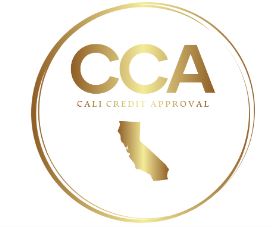Your cart is currently empty!
Auto loan delinquencies are a growing concern across the U.S., as highlighted by a recent LendingTree analysis. While Southern states currently bear the brunt of late payments, it’s crucial for Californians to understand these trends and adopt smart financial habits to protect their financial well-being.
At CaliAutoApproval.com, we believe in empowering our community with the knowledge to make informed decisions about their auto financing. Let’s dive into why delinquencies are rising and, more importantly, how Californians can learn from states with the lowest delinquency rates to stay on track.
The Rising Tide of Delinquencies: What’s Happening?
The LendingTree report, published on June 27, 2025, indicates a concerning trend: 5.1% of Americans are now delinquent on at least one auto loan. Despite low unemployment rates, stubborn inflation and high interest rates are making it harder for many to keep up. As LendingTree’s chief consumer finance analyst Matt Schulz puts it, “When auto loan delinquencies are rising, it’s a likely sign that people are struggling.”
Southern states, particularly Mississippi (9.8%) and Louisiana (8.4%), are seeing the highest delinquency rates. This is often attributed to lower average credit scores and incomes in these regions, leaving less financial wiggle room when times get tough.
California’s auto loan delinquency rates have also been on the rise, reaching pre-pandemic levels. Data shows that auto loan balances and average monthly payments have surged over the past decade, making affordability a key challenge. (Source: Recent California Credit Dashboard Updates from California Policy Lab indicate rising auto delinquencies post-pandemic.)
Lessons from the Top Performers: States with the Fewest Delinquencies
While states like Mississippi and Louisiana struggle, others maintain remarkably low delinquency rates. Let’s look at the top states with the fewest delinquent car loan payments:
Alaska: 3.2%
Utah: 3.2%
Washington: 3.2%
New Hampshire: 3.2%
Minnesota: 3.4%
Oregon: 3.5%
Idaho: 3.5%
Maine: 3.5%
Arizona: 3.6%
Hawaii: 3.6%
What can Californians learn from these states? It’s not just about geography; it’s about financial habits and factors like:
1. Prioritize and Track Your Spending
As LendingTree suggests, a detailed budget is crucial. This helps you identify where your money goes and where you can make adjustments to meet your obligations. Knowing your financial limits before you shop for a car is the first step to avoiding over commitment.
2. Build and Maintain Good Credit
States with lower delinquency rates tend to have higher average credit scores. A strong credit score is your golden ticket to better interest rates and lower monthly payments, making your loan more manageable. Regularly check your credit report, pay bills on time, and keep your credit utilization low to improve your score.
3. Proactive Communication with Lenders
If you find yourself struggling, don’t wait until you miss a payment. Contact your lender immediately. Many financial institutions have hardship programs that can offer temporary relief, such as payment deferrals or modified payment plans.
4. Strategic Refinancing
If your credit score has improved since you first took out your loan, or if interest rates have dropped, exploring refinancing options could significantly lower your monthly payments. Just be sure to consider any fees and the overall loan term to ensure it benefits you in the long run.
Californians’ Edge: Consumer Protections and Smart Choices
California has strong consumer protections in place, such as the Car Buyer’s Bill of Rights, which requires dealers to disclose your credit score and provides options like a 2-day contract cancellation for used cars under $40,000. These protections, along with oversight from the California Department of Financial Protection and Innovation (DFPI) under the California Consumer Financial Protection Law (CCFPL), can help you make more informed decisions upfront.
However, even with these safeguards, personal financial management is key. Here’s how you can apply the lessons from top-performing states:
Budget Wisely: Before committing to a car loan, create a realistic budget that accounts for all transportation costs—not just your car payment, but also insurance, fuel, and maintenance. Many financial experts recommend the “20/4/10 rule”: aim for a 20% down payment, a loan term of 4 years or less, and total transportation costs not exceeding 10% of your gross monthly income.
Shop Smart for Your Loan: Don’t just accept the first loan offer. Compare rates from multiple lenders, including credit unions and online lenders, to secure the most favorable terms. At CaliAutoApproval.com, we work to connect you with competitive options.
Know Your Rights: Familiarize yourself with California’s Car Buyer’s Bill of Rights (you can find official resources on the California DMV website) and other consumer protection laws to ensure you’re getting a fair deal.
By adopting these smart financial habits and leveraging California’s consumer protections, you can navigate the auto finance landscape with confidence and avoid falling into delinquency.
Ready to Drive Off with Confidence?
At CaliAutoApproval.com, we’re dedicated to helping Californians secure competitive auto financing tailored to their needs, regardless of their credit history.
Ready to explore your auto loan options and drive smart?
Apply for Pre-Approval with CaliAutoApproval.com Today!
Disclaimer: This blog post is for informational purposes only and does not constitute financial or legal advice. Auto loan terms and eligibility vary. Always consult with a qualified financial advisor or legal professional for personalized guidance. While CaliAutoApproval.com strives to provide accurate information, we are not responsible for any actions taken based on the content of this post. Refer to official government and financial institution websites for the most current regulations and advice.


Leave a Reply